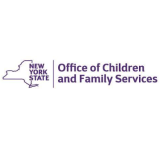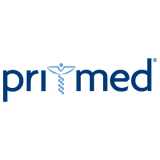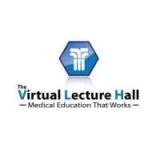Behavioral Addictions

This course will provide clinicians with the latest clinical and empirical evidence that addresses behavioral addictions, including phenomenology, epidemiology, comorbidity, neurobiologic mechanisms, genetic contributions, treatment response, and prevention.
Category
Format
- Self-study / Enduring
Credits
- 15.00 AMA PRA Category 1 Credit™
- 15.00 ANCC
Forensic Nursing: An Overview

Nurses working in emergency centers often care for victims of intentional harm, criminal neglect, and accidents arising from illegal activities.
Category
Format
- Self-study / Enduring
Credits
- 2.00 ANCC
Mandated Reporter Training: Identifying and Reporting Child Abuse and Maltreatment

Mandated reporters can participate in this 2-hour web-based online training course at any time, 24/7. Users must complete the course within the course duration which is the current calendar year. Progress is saved at the end of each section, so you can complete it at your own pace.
Category
- State Mandated Training
- Mandated Reporter
Format
- Self-study / Enduring
Credits
- 2.00 Participation
Embracing the Journey: End of Life and Palliative Care

All seriously ill patients can benefit from palliative care principles in the primary care setting. This session is designed to offer clinicians the information and skills needed to provide high-quality primary palliative care to patients with serious illness.
Category
- Palliative Care
- End of Life Care
Format
- Self-study / Enduring
Credits
- 1.00 AANP Contact Hours
- 0.75 AANP Pharmacology Contact Hours
- 1.00 AMA PRA Category 1 Credit™
Suicide Prevention: Evidence into Practice

Suicide was declared a public health crisis by the U.S. Surgeon General in 1999. However, suicide rates continued to climb over the past two decades by a staggering 35% (1999-2018). Fortunately, we have seen decreases in the national suicide rates from 2018-2020.
Category
- Suicide
Format
- Self-study / Enduring
Credits
- 1.00 AMA PRA Category 1 Credit™
Tick-Borne Diseases

Vector-borne diseases are spread by arthropods such as ticks, mosquitoes, or fleas. In the U.S., ticks are the number one vector responsible for transmission to humans. These tickborne diseases are challenging to diagnose as they often have non-specific symptoms.
Category
Format
- Self-study / Enduring
Credits
- 1.00 AMA PRA Category 1 Credit™
- 1.00 ANCC
Recognizing Misuse or Abuse of Controlled Substances

Many state medical licensing boards have already or will soon require healthcare professionals to complete mandated continuing education that addresses prescribing controlled substances. Misuse and abuse of prescribed controlled substances can lead to serious consequences, including addiction an
Category
- Drug Diversion
Format
- Self-study / Enduring
Credits
- 1.25 AMA PRA Category 1 Credit™
Post-Traumatic Stress Disorder

Primary care practitioners treat many civilians and veterans of all ages who exhibit symptoms of PTSD, but many lack the necessary knowledge to identify PTSD and perform differential diagnosis.
Category
- Post-traumatic Stress Disorder (PTSD)
- Pharmacology
Format
- Self-study / Enduring
Credits
- 15.00 AMA PRA Category 1 Credit™
- 15.00 ANCC
- 15.00 Association of Social Work Boards (ASWB)
Mental Health Issues Common to Veterans and Their Families

The effects of deployment to military combat on the individual and the family system are wide-reaching and can be severe. Military personnel may confront numerous potentially traumatizing experiences, including military-specific events and those experienced by civilians.
Category
Format
- Self-study / Enduring
Credits
- 2.00 AMA PRA Category 1 Credit™
- 2.00 ANCC
- 2.00 Association of Social Work Boards (ASWB)
Safe and Effective Opioid Prescribing While Managing Acute and Chronic Pain

Category
- Prescribing: Opioid(s)
- Pain Management: Acute
- Pain Management: Chronic
Format
- Self-study / Enduring
Credits
- 3.00 AMA PRA Category 1 Credit™

 Facebook
Facebook Twitter
Twitter LinkedIn
LinkedIn Forward
Forward